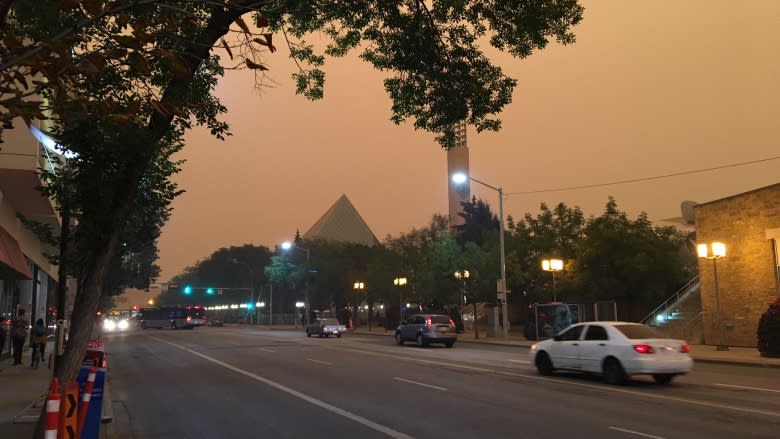Worst in the world: Edmonton took dubious honour in air quality rankings
Last week, among the thousands of urban areas in 85 countries around the world, Edmonton had the worst air quality in cities with more than 250,000 people.
The culprit was drifting smoke from the B.C. wildfires.
According to Berkeley Earth's air quality data, Edmonton beat out cities in India, China and the Middle East, places where cities with poor air quality usually top the list.
At its peak, the city's air quality was about 180 micrograms per cubic metre, about 18 times higher than its average.
"The air quality in Edmonton was clearly unhealthy," Robert Rohde, the lead scientist at Berkeley Earth, told CBC's Radio Active.
Most of the poor air quality in the Middle East, India and China is as a result of industry use — like the excessive burning of coal and other fossil fuels in large quantities, for example.
But in Edmonton, as in most North American cities, the primary cause of poor air quality is wildfire smoke, he said.
In terms of poor air quality, the two types of pollution are the same but health effects may differ, Rohde said.
"When you talk about air quality from wildfires, mostly you're burning wood, so you're getting lots of organics mixed in," he said. "When you're burning coal, you also have, in addition, things like heavy metals which can be more irritating than the organics.
"Those distinctions are not extremely well-understood. It's still an active area of research."
He said there were areas that were worse — some smaller Alberta communities saw pitch black during the day, for example — but Edmonton ranked highest because Berkeley Earth only track cities with more than 250,000 people in them.
Getting better
Since those peaks last week, Edmonton's air quality has dramatically improved — so much so that it's "well out of the top 25" worst air qualities, Rohde said.
But we're not out of the woods yet.
"One can be cautiously optimistic that things will stay better but until the fire season is actually over, we won't know for sure," he said.
Deterioriating air quality due to wildfires has become increasingly more common in recent years, Rohde said. The increase in global temperatures dries out trees and other fuel for fires, making it easier for them to burn.
"Not that every year we'll have large wildfires but that's just something that is likely to become more common in the future," he said.



